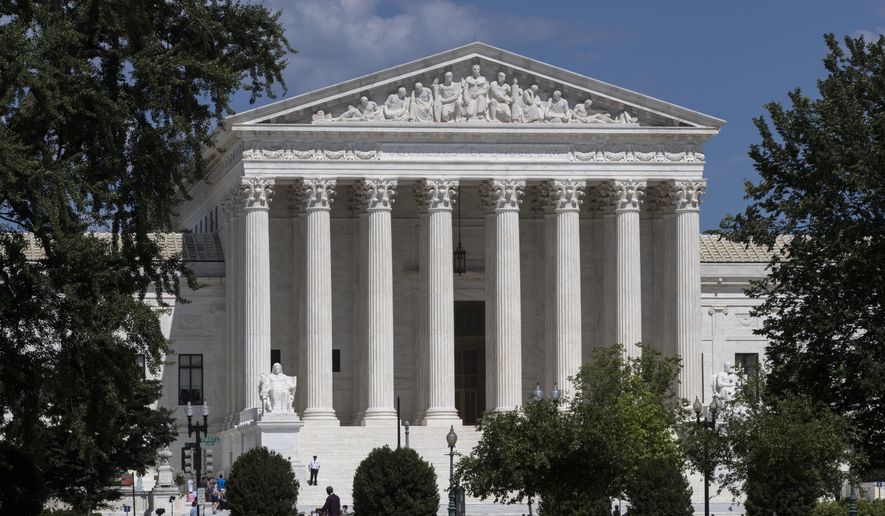The Supreme Court on Monday rejected two cases involving the ouster of religious leaders, one brought by a church and the other by a private school.
The religious institutions had argued that the First Amendment’s jurisprudence and ministerial exemption, which bars legal claims brought by religious employees against a church, require courts to dismiss the lawsuits, leaving the internal dispute to the church.
One case was brought by Alexander Belya against the Synod of Bishops of the Russian Orthodox Church Outside of Russia. He claimed the church defamed him after he was removed from an elected leadership role over allegedly breaching the seal of confession, controlling parishioners and not accounting for church property.
Lower courts allowed his defamation suit against the church to proceed, opening up the discovery process to include aspects of the church’s internal work.
The other case was brought by Gregory Tucker against Faith Bible Chapel International. He was removed as chaplain after he delivered remarks to students suggesting the school community was racist due to White privilege.
He sued over his removal, claiming racial discrimination despite being White.
SEE ALSO: Supreme Court won’t hear case over Confederate flag on North Carolina license plates
Lower courts allowed the discovery process to proceed, refusing the school’s motion to dismiss.
Both the Synod of Bishops of the Russian Orthodox Church Outside of Russia and Bible Chapel International had asked the justices to reconsider the lower courts’ decisions, saying the lower courts intruded into church decisions and inner workings.
The high court declined to do so. It would have taken four justices to vote in favor of hearing the disputes.
Rachel Laser, president and CEO of Americans United for Separation of Church and State, cheered the high court’s move. Her organization represented Mr. Tucker and Mr. Belya.
“Religious freedom is not a license to harm others or prevent people from seeking justice in courts of law. These cases are far from over, but Gregg Tucker and Father Alexander Belya now have a chance to vindicate their rights,” Ms. Laser said. “We are facing an aggressive movement working to recast religious freedom into a weapon that would allow religious institutions to discriminate without limit or consequence. AU believes religious freedom should be a shield, not a sword. Today, the Court let that principle stand.”
• Alex Swoyer can be reached at aswoyer@washingtontimes.com.




Please read our comment policy before commenting.